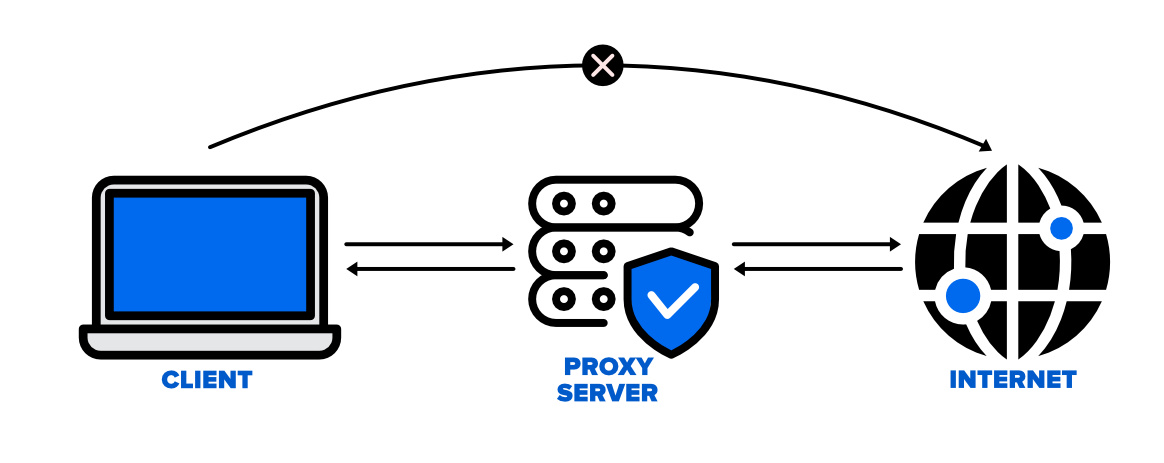Safe Surfing in a Perilous Environment: The Significance of Intermediary Devices

In the current digital age, the internet can frequently feel like a wild west where dangers lurk around every corner. Whether it's identity theft, data breaches, or unwanted surveillance, safeguarding our online presence has always been more critical. One strong tool in navigating this treacherous landscape is the proxy server. With Visit the website to act as intermediaries between users and the internet, proxy servers offer a significant layer of privacy, security, and anonymity that can significantly enhance our browsing experience.
As technology evolves, so do the methods we use to protect ourselves. Proxy servers serve a variety of purposes, from overcoming geographical restrictions on content to providing an added barrier against potential cyber threats. Understanding what a proxy server is and how it functions can empower users to make knowledgeable decisions about their online activities. In this article, we will explore the significance of proxy servers, their diverse types, the advantages they offer for privacy and security, and how they can be employed effectively in both personal and professional contexts.

Comprehending Proxy Servers
A middleman server acts as an intermediary between a individual's device and the web. When you connect to a proxy server, your demands for data are forwarded through the intermediary instead of directly to the destination server. This means that the middleman fetches the information for you, which then enables for multiple capabilities such as privacy, security, and filtering content.
One of the key functions of a middleman is to supply a layer of safeguarding for your internet activities. By masking your IP address, it makes it more difficult for online platforms and potential hackers to monitor your digital footprint. This additional layer of obscurity helps safeguard your personal information, making it a crucial tool for those focused about safety in an ever more interconnected virtual world.
Moreover, these middlemen can boost the overall user experience by enhancing connection speeds and allowing access to region-locked content. Varied types of proxy servers, such as HTTP, Socket Secure, and see-through proxies, cater to different needs, offering versatility for users to choose the most suitable option based on their distinct requirements, whether for individual use or corporate purposes.
Benefits and Risks of Proxy Usage
Employing a proxy server offers a multitude of benefits, particularly in enhancing online privacy and security. By acting as an intermediary between the user and the internet, proxies can hide the user's real IP address, making it more difficult for websites and malicious actors to trace online activities. This anonymity can be vital for individuals wanting to protect personal information or for businesses that aim to ensure their operations are guarded from potential cyber threats. Additionally, proxy servers can assist users access geo-restricted content, allowing for a broader browsing experience.
However, there are significant risks linked with using proxy servers, particularly free ones. Free proxies may not have adequate security measures in place, putting users to data breaches and malware. Furthermore, many free services track user activities, potentially compromising privacy rather than improving it. It's crucial to scrutinize the reputation and trustworthiness of a proxy service to minimize these risks. Neglecting to do so could result in exposing sensitive information to third parties.
In the context of business operations, while proxy servers can greatly enhance cybersecurity and productivity, organizations must consider these advantages against the potential for misconfiguration or inadequate protection. A badly managed proxy can lead to security vulnerabilities, potentially opening the company to harmful attacks. As with any technological solution, it is crucial to invest in reputable proxy services and to apply best practices for security.
Proxy Solutions in Various Applications
Organizations often rely on proxy servers as crucial tools for improving cybersecurity. By directing internet traffic through a proxy server, organizations can monitor and refine outgoing and incoming data. This permits them to block dangerous web pages, stave off data breaches, and ensure compliance with business regulations. Additionally, proxy solutions can offer anonymity for employees, making it challenging for outside entities to track their online activities, thus enhancing the overall security of the organization.
In gaming, proxies are utilized to reduce lag and boost connection stability. Video game enthusiasts often encounter challenges like latency and connection disruptions, which can greatly affect gameplay. By using a proxy specifically designed for gaming, gamers can experience a more consistent experience, avoid regional blocks, and even boost their chances of not getting suspended for IP misuses. This ensures a smoother gaming experience and enhanced access to game servers worldwide.
Proxy servers play a essential role in web scraping and data collection for market research. Researchers and businesses use proxies to gather data from websites without attracting attention or getting blocked. Various kinds of proxies, such as private and data center proxies, facilitate users to obtain information effectively while remaining anonymous. By leveraging proxies, organizations can keep a lead of rivals, glean insights from market trends, and adjust their strategies accordingly without facing the dangers associated with unauthorized data collection attempts.
